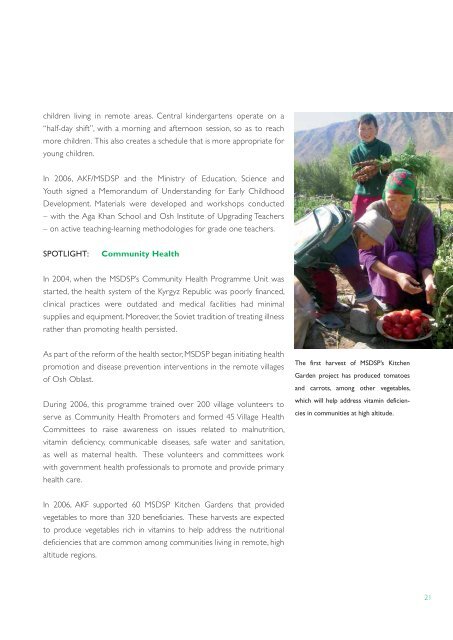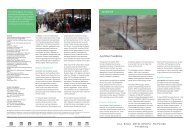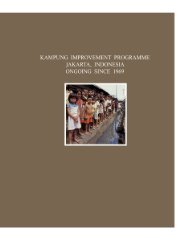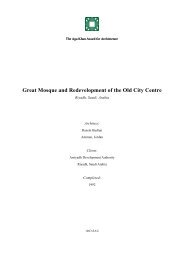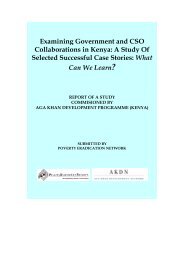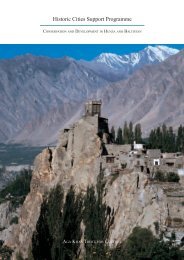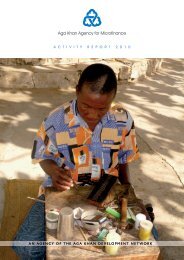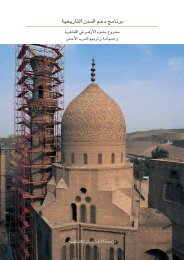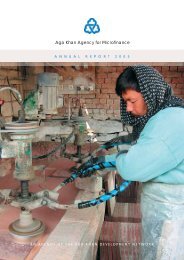AKF Annual Report - Aga Khan Development Network
AKF Annual Report - Aga Khan Development Network
AKF Annual Report - Aga Khan Development Network
Create successful ePaper yourself
Turn your PDF publications into a flip-book with our unique Google optimized e-Paper software.
children living in remote areas. Central kindergartens operate on a<br />
“half-day shift”, with a morning and afternoon session, so as to reach<br />
more children. This also creates a schedule that is more appropriate for<br />
young children.<br />
In 2006, <strong>AKF</strong>/MSDSP and the Ministry of Education, Science and<br />
Youth signed a Memorandum of Understanding for Early Childhood<br />
<strong>Development</strong>. Materials were developed and workshops conducted<br />
– with the <strong>Aga</strong> <strong>Khan</strong> School and Osh Institute of Upgrading Teachers<br />
– on active teaching-learning methodologies for grade one teachers.<br />
SPOTLIGHT:<br />
Community Health<br />
In 2004, when the MSDSP’s Community Health Programme Unit was<br />
started, the health system of the Kyrgyz Republic was poorly financed,<br />
clinical practices were outdated and medical facilities had minimal<br />
supplies and equipment. Moreover, the Soviet tradition of treating illness<br />
rather than promoting health persisted.<br />
As part of the reform of the health sector, MSDSP began initiating health<br />
promotion and disease prevention interventions in the remote villages<br />
of Osh Oblast.<br />
During 2006, this programme trained over 200 village volunteers to<br />
serve as Community Health Promoters and formed 45 Village Health<br />
Committees to raise awareness on issues related to malnutrition,<br />
vitamin deficiency, communicable diseases, safe water and sanitation,<br />
as well as maternal health. These volunteers and committees work<br />
with government health professionals to promote and provide primary<br />
health care.<br />
The first harvest of MSDSP’s Kitchen<br />
Garden project has produced tomatoes<br />
and carrots, among other vegetables,<br />
which will help address vitamin deficiencies<br />
in communities at high altitude.<br />
In 2006, <strong>AKF</strong> supported 60 MSDSP Kitchen Gardens that provided<br />
vegetables to more than 320 beneficiaries. These harvests are expected<br />
to produce vegetables rich in vitamins to help address the nutritional<br />
deficiencies that are common among communities living in remote, high<br />
altitude regions.<br />
21


